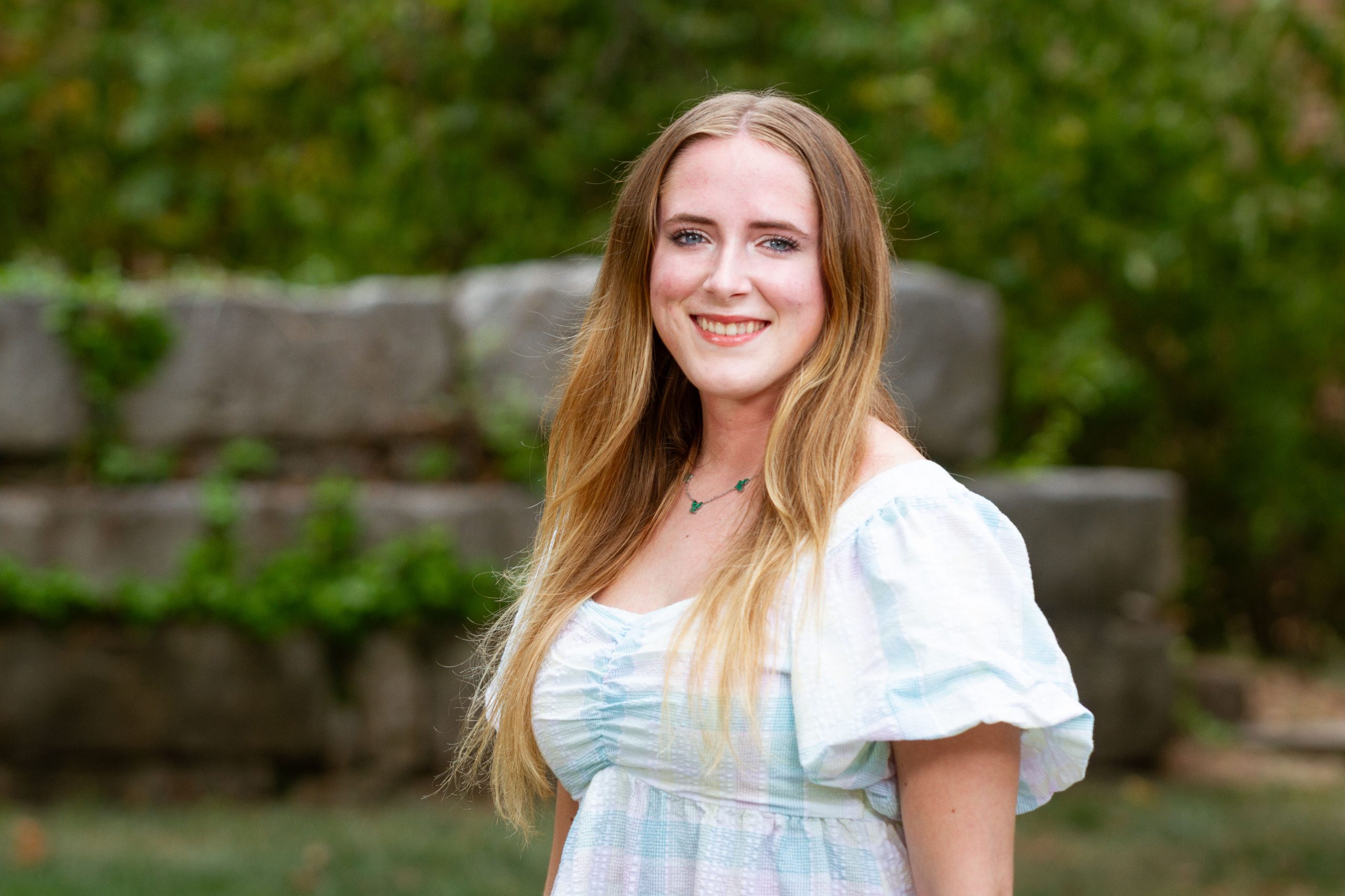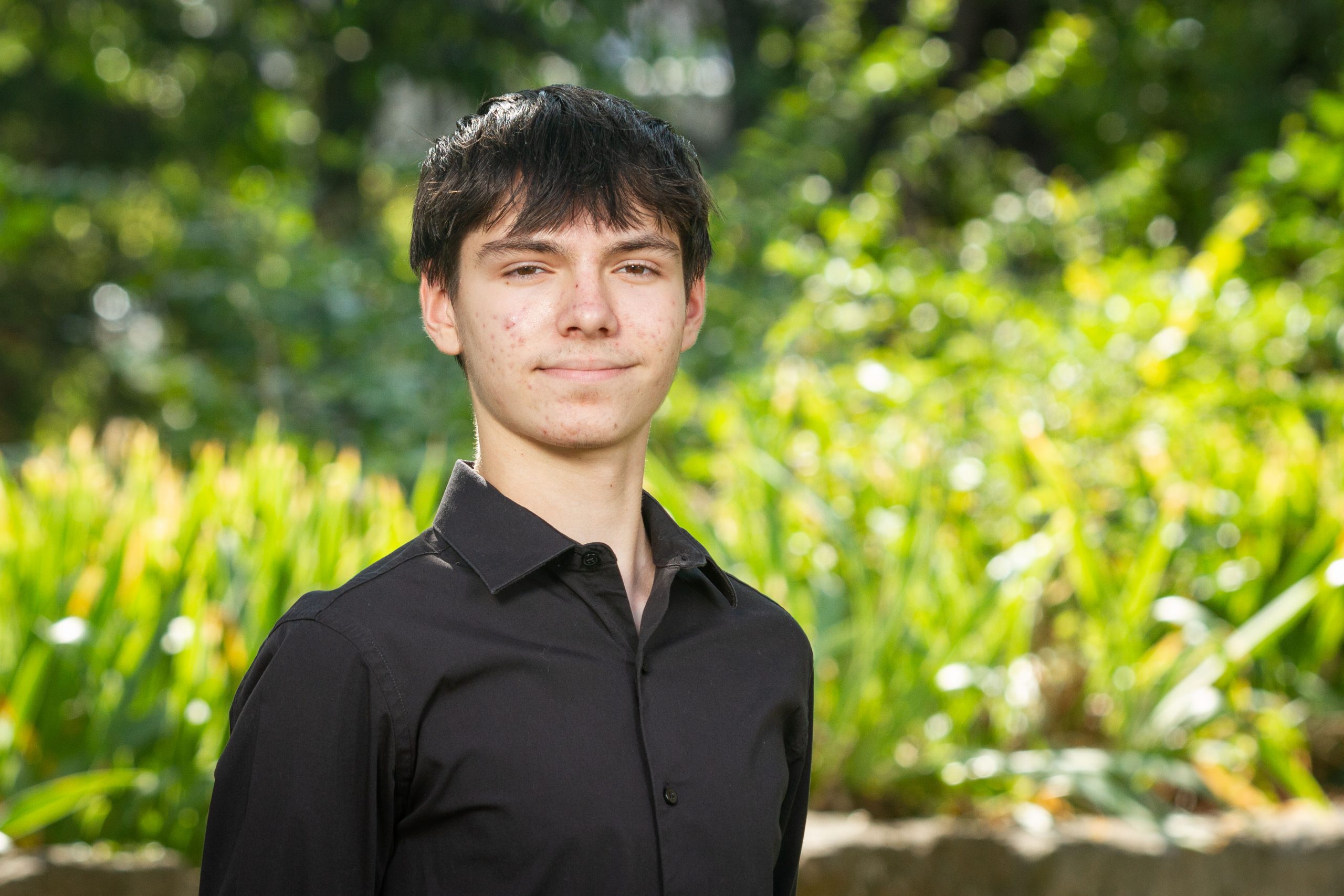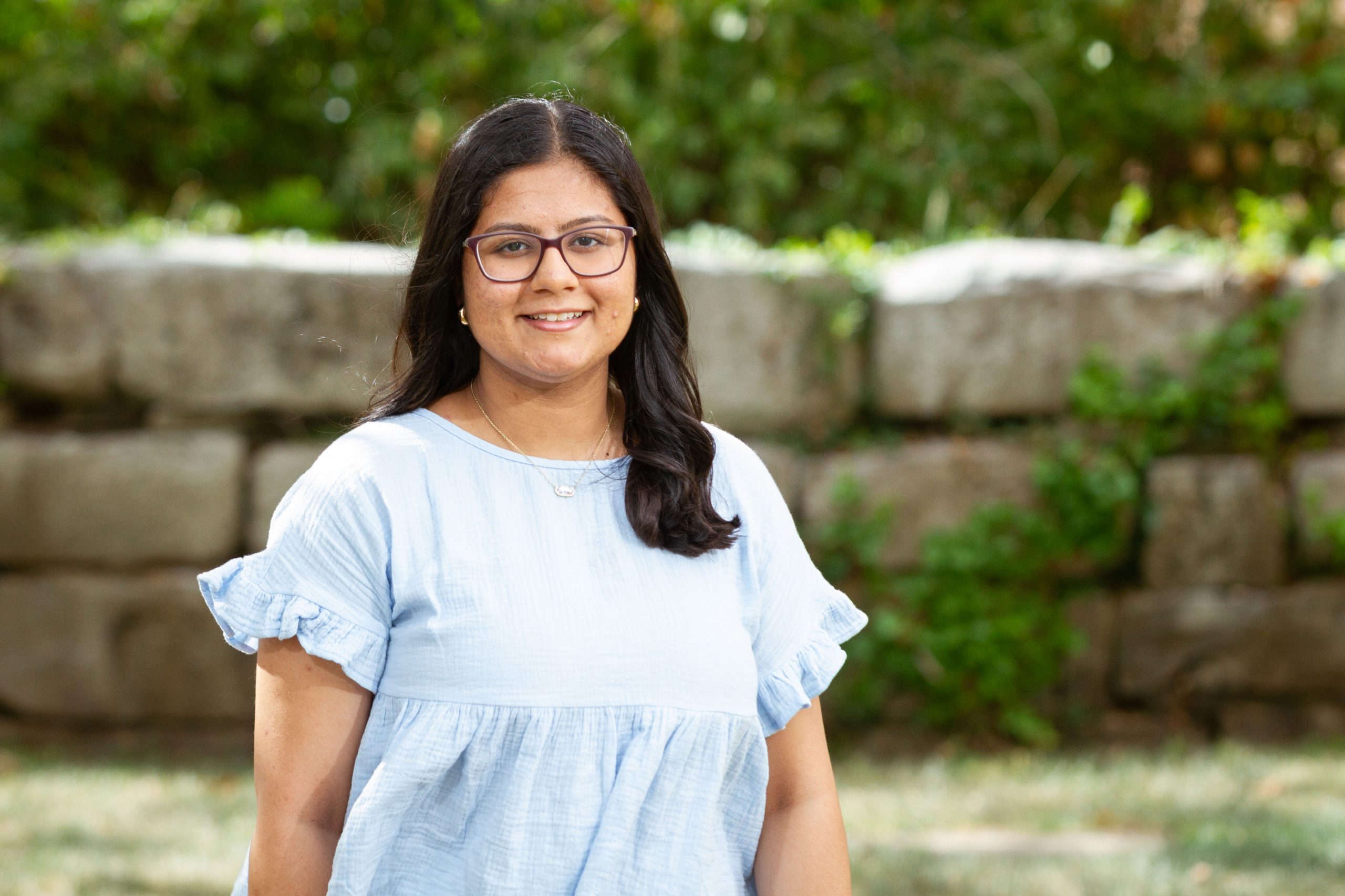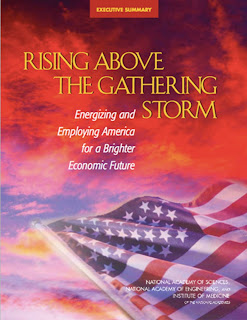Photo Album: 2010 Commencement
May 15, 2010 | Alumni, News, Parents, People, Staff, Student Life, Student Success, WKU | No Comments

July 4, 2025

June 5, 2025

May 5, 2025
May 15, 2010 | Alumni, News, Parents, People, Staff, Student Life, Student Success, WKU | No Comments
May 13, 2010 | Alumni, Gifted Ed, News, Parents, People | No Comments

Parents, Alumni, and Friends:
From time to time, we ask your assistance in promoting legislative priorities that affect the lives and educational opportunities for young people who are gifted and talented. Legislators benefit from hearing the thoughts of their constituents on policy matters and weigh those communications heavily when making decisions.
Members of the U.S. Senate Committee on Energy and Natural Resources are examining and voting on an important piece of legislation that has the power to promote opportunities for schools of science and math. These Senators are the ones who will be considering the America COMPETES Acts prior to Memorial Day recess, so acting soon is imperative.
We encourage you to contact Kentucky Senator Jim Bunning to request that he votes to retain programs (specialized schools of science and math) in the America COMPETES Act. Should you have friends or family in other states willing to lend their voice, a full list of committee members by state can be found below.
One recommendation in the report Rising Above the Gathering Storm, states that it is important to keep the message that schools of math and science constitute a key strategy “to ensure that the United States maintains its leadership in science and engineering to compete successfully, prosper, and be secure in the 21st century” (p. vii). The need for specialized schools of science and mathematics is greater than ever, so please retain the language from the original America Competes legislation.
Retaining this language in the act has the potential to fuel additional STEM educational opportunities should the program receive federal funding.
We encourage you to note the following items in your message to Sen. Bunning:
• “As a member of the committee, you are in a position to ensure that the math-science high school language that is in current law is retained in the reauthorization of America COMPETES.”
• The Carol Martin Gatton Academy of Mathematics and Science in Kentucky is the time of program that represents the goals of the America COMPETES Act. The program is about enabling a twenty-first century workforce that is trained for advanced STEM careers. Moreover, the program assists promising future leaders in becoming more innovative, creative, and entrepreneurial.
• The Gatton Academy, which represents 95 of Kentucky’s 120 counties and has partnered with over 100 public high schools, demonstrates that specialized science and math schools have the ability to affect change across a wide geography of students and districts.
We ask that you fax a letter to Sen. Bunning’s office by Monday, May 17, 2010, at 4 p.m. EST. A tangible letter is less difficult to dismiss. Letters may be faxed to 202-228-1373.
Should you wish to email Sen. Bunning, you can do so through his website: http://bunning.senate.gov/public/index.cfm?FuseAction=Contact.ContactForm. Select “Energy” from the topic list and please include “Urgent: America COMPETES Act” as the subject.
As always, your efforts to promote opportunities for all students across the Commonwealth and nation are sincerely and greatly appreciated.
Sincerely,
Dr. Julia Roberts, Executive Director
Mr. Tim Gott, Director
Mr. Corey Alderdice, Assistant Director, Admissions and Public Relations
Democrats
Chairman Jeff Bingaman (NM)
Byron L. Dorgan (ND)
Ron Wyden (OR)
Tim Johnson (SD)
Mary L. Landrieu (LA)
Maria Cantwell (WA)
Robert Menendez (NJ)
Blanche Lincoln (AR)
Bernard Sanders (I) (VT)
Evan Bayh (IN)
Debbie Stabenow (MI)
Mark Udall (CO)
Jeanne Shaheen (NH)
Republicans
Lisa Murkowski (AK)
Richard Burr (NC)
John Barrasso (WY)
Sam Brownback (KS)
James E. Risch (ID)
John McCain (AZ)
Robert Bennett (UT)
Jim Bunning (KY)
Jeff Sessions (AL)
Bob Corker (TN)
October 23, 2009 | Alumni, News, Parents, Student Life, WKU | No Comments

The Gatton Academy wishes to invite current students, alumni and their families to our inaugural Homecoming Celebration on Saturday, November 7, 2009.
For some, it might be the first time you’ve returned since graduation. For others, come on over from your residence hall on campus amid WKU’s other Homecoming activities.
The Academy will provide a lunchtime tailgate for our guests. The tailgating menu will include barbecue with all the trimmings. Vegetarian options will also be available. Lunch will be served at 1 p.m. in the parking lot behind Schneider Hall.
If you are interested in attending the football game as WKU takes on Troy at 4 p.m., you may obtain tickets via the WKU ticket office by telephoning 1-800-5-BIG-RED.
Alumni and parents are kindly asked to RSVP online at http:///gattonhomecoming09.eventbrite.com no later than noon on Monday, November 2, 2009. Current Academy students need not RSVP.
We look forwarding to seeing you then as we celebrate the exciting things happening at the Gatton Academy.
 The Center for Gifted Studies at WKU is hosting the 2009 Berta Seminar for Excellence in Education on Oct. 26-27.
The Center for Gifted Studies at WKU is hosting the 2009 Berta Seminar for Excellence in Education on Oct. 26-27.
An evening session for parents is scheduled for 6:30 p.m. to 8 p.m. CDT Oct. 26 followed by an all-day professional development workshop for educators and administrators from 8:30 a.m. to 3:30 p.m. CDT Oct. 27. Both events will be held at the Carroll Knicely Conference Center on Nashville Road in Bowling Green.
Thanks to the generosity of the Berta family, these events are free and open to the public. Presenters Dr. Virginia H. Burney and Dr. Kristie Speirs Neumeister, experts in educational psychology relating to gifted children, will discuss the social and emotional needs of gifted young people.
During the parent seminar, Social and Emotional Characteristics and Issues of High Ability Children, Dr. Burney and Dr. Neumeister will discuss the characteristics of gifted children and associated (possibly problematic) behavioral manifestations of those characteristics. Tips for parents and teachers in assisting positive development will also be explored.
On Oct. 27, teachers will spend the day learning how the characteristics and needs of gifted children interact with school culture in Meeting the Social and Emotional Needs of the Gifted in School. Participants will practice strategies for meeting the needs of these students and for assisting others in understanding gifted children. Resources will be provided. EILA credit is available.
About the Berta Seminar: Thanks to the generosity of Vince and Kathleen Berta, this event is free and open to the public. The Bertas realized that gifted children had needs that came from their strengths and meeting those needs required both parents and teachers. The Berta Seminar brings in experts in the field of education to conduct seminars and presentations designed specifically for the parents of gifted children. And because educating gifted students requires teachers as well as parents, The Berta Seminar sponsors a professional development seminar for educators to learn how to better meet the needs of gifted young people in the classroom.
For more information, contact The Center for Gifted Studies, (270) 745-6323.
On Sept. 25, teachers, counselors, school leaders and parents are invited to attend Diversity and Developing Gifts and Talents, presented by The Center for Gifted Studies at WKU and board members of The Association for the Gifted of the Council for Exceptional Children.
During this daylong event, nine experts in the field of gifted education will discuss strategies for identifying gifted children of diverse populations and for developing their potential.
The keynote will be “Identification of Underrepresented Groups for Gifted Services” by Dr. Susan Johnsen of Baylor University.
Participants can attend such sessions as teaching twice exceptional students, communicating with families of diverse learners, addressing the needs of gifted students in rural schools and providing support to a diverse population of gifted students in a variety of settings.
The event will be held from 8:30 a.m. to 3:30 p.m. (Central time) at the Carroll Knicely Center, WKU South Campus. EILA credit is available. For information, click here or contact The Center at ![]()

![]()
![]()

![]()
![]()
![]()
![]()
![]()
![]()
![]() (270) 745-6323
(270) 745-6323![]() or gifted@wku.edu.
or gifted@wku.edu.
August 31, 2009 | Academics, News, Parents, Student Life | No Comments
KAGE Panel on High Ability Students from Gatton Academy on Vimeo.
Eight high school seniors at the Gatton Academy share their experiences as gifted students. Topics included many concepts: teacher practices in elementary, middle, and high school that were effective; challenges gifted students face; the importance of rigor and research; and opportunities afforded by attending the Gatton Academy.
August 28, 2009 | News, Parents, Student Life | No Comments

by Elaine Flynn, Academy Avatar
With Adventure Week, a new class enters the halls of Gatton Academy. Within this group of students, some may feel like they packed too much, others are still finding their place, and then there are a handful of students who were prepared by an older sibling.
The 2008-09 school year marked the first occasion in which siblings attended the Gatton Academy: Jenny and Jason Ludden. Jenny, a 2009 alumna, noted having a brother in the program did not significantly alter her experience. “Jason and I have always gotten along really well so being at the academy with him wasn’t a big deal,” she said. “I encouraged him to apply.”
She went on to mention how they attended a few classes together and how useful it was to be able to study with each other. No matter how unusual for the second year of the program, no one expected what was to come next.
The entering Class of 2011 features three students with siblings that have graduated from the Academy: Michael Bowie, Corban Coffman, and Josh “Moose” Song. This year has also taken another step or two in family relationships at the Academy by having cousins, Tejas Sangoi and Paras Vora.
Perhaps most unique of all are twins Brittany and Courtney Howard.
These sisters have both chosen to attend the Academy out of their love for math and science. Between sharing a room, class schedule, friends, and talents they love, Brittany and Courtney have an interesting year ahead of them.
Yet, it didn’t just start this week, it started during the application process. Brittany and Courtney knew that there was a possibility that only one of them would make it into the Academy. However, they hung onto hope that they wouldn’t have to deal with that situation. They did know that if it happened they would remain supportive of each other. When the mail finally arrived after interview weekend, Brittany’s and Courtney’s hope was rewarded with both receiving letters of acceptance.
They will now experience the challenge facing all first-year Academy students: having a roommate. However, when asked about sharing a room this year, Brittany commented, “When we were little we shared a room, but when our older sister left for college I got her room.”
They may even fight from time to time but, “We are just like any other siblings,” Courtney expressed.
When asked about the effectiveness of familiar support from siblings, Tim Gott, the Academy’s director, believes having a family member around can provide a special, additional layer of support in the transition to life in Schneider Hall. “The biggest factor is that having prior experiences eliminates some of the fear factor,” he said. “Parents are much more comfortable and siblings have the inside stories to help make them comfortable. Not to mention having some textbooks and materials.”
As the semester begins, all Academy students will find themselves working hard, yet having the tight relationships will continue to keep them together and strong. Whether it is a twin, a sibling, a cousin, a friend from a home school, or friends made here, if any student wishes to succeed in this atypical high school, then they will need each other.
August 23, 2009 | News, Parents, Student Life | No Comments
 You might say Cate Lauzon has become a pro at helping her daughters head off to college.
You might say Cate Lauzon has become a pro at helping her daughters head off to college.
If not a pro, at least she’s had practice this week. Sunday marks the second time in less than seven days that one of her daughters is beginning college—for the first time. Though the elder is studying at Bellarmine University in Louisville, her youngest daughter Madeline is beginning her first year at the Carol Martin Gatton Academy of Mathematics and Science in Kentucky at Western Kentucky University.
Madeline, along with 65 other Class of 2011 members, moved box after box of bedding, clothes, computers, and other items into Schneider Hall today as Adventure Week began on the WKU campus. The one-week program provides Gatton Academy students with the opportunity to ease into the transition of life on a university campus while getting to know their peers and classmates at the Gatton Academy.
Cate still smiled as she sorted through another box of her daughter’s possessions. “I’m kind of worn out. We’re at the end of a long week. I suppose I’d be more stressed out, but I’m just too tired.”
Though tired, she is very optimistic about the opportunity Madeline has ahead. “I want her to really expand her academic life,
she noted. “I want her to see what else is out there and possible that she hasn’t seen yet. I want her to get excited about all the areas she’s never been exposed to.”
Two floors below the Lauzon’s in Schneider hall, Camille Turner and her mother Carmen also continue the work of unpacking. When asked what she was most nervous about, she replied, “The work. Just going from the transition from high school to college.”
For many Gatton Academy students, they are leaving behind a traditional high school experience in favor of more challenging courses, the opportunity to conduct research, and making the most of being in a university environment. These are exactly the kind of opportunities Carmen believes her daughter will have as a student at the Gatton Academy.
“She’s always excelled in high school,” she said. “Camille’s always done well. There’s no apprehension, so I’m okay with it. I’m excited for her. Before she only did research, now she’s doing the real thing. She’s such a great kid, and she’ll be such a great student.”

The academic rigor is the element of the program that makes study at the Gatton Academy so unique. For Shawn Kelly, father of Kyle Kelly, he believes it’s the kind of challenge his son and other gifted students need most. “This is what we’ve been waiting for. This will open doors for him that he never, ever would have had. They need to be challenged.”
The mood around Schneider Hall on Sunday seemed to echo that enthusiasm. Cheryl Buhr, mother of Madeline Buhr, shared that she was not nervous. Instead, she seemed excited for her daughter and the experiences she’ll have. “I’m not really nervous,” she said. “I’m excited for (Madeline). I think this is a wonderful opportunity. The possibilities are just endless. I know that’s (the Academy’s) saying, but it’s true. The opportunities she’ll have here are nothing like she would have had in high school.”
For Susan Bowie, this marks the third year in a row she has helped a son move into Schneider Hall. John, her oldest son, was part of the first class of students selected to attend the Gatton Academy. A 2009 graduate, he will continue undergraduate work at WKU as his brother Michael begins classes at the Academy. For her, Adventure Week is about getting students into the right mindset for the coming year. “With this extra week, students have the chance to get prepared and know the expectations,” Bowie said.
Seeing the growth in the program since its inception only increases Bowie’s confidence in her son studying at the Academy. “I’m comfortable with it. I know he’ll be in good hands.”
Even as students make this transition, many see the newness of it as a chance to grow. For Kyle Kelly, it’s a chance to make a fresh start. “It’s just a blank slate,” he said. “I’m really looking forward to starting over, a new school with new challenges.”
Life at the Gatton Academy provides students the opportunity to become more independent. Others look to the possibility of making new friends. In fact, many have been counting down the days since they received admissions letters in the mail. “I had a countdown on my calendar,” noted Madeline Lauzon.
While there will quickly be work that needs completion and exams for which to study, students on the whole seem keen on what’s ahead. In the short term, though, sometimes the hardest part is simply realizing there’s not enough space in the room once the unpacking begins. “I brought too much stuff,” Lauzon said will a laugh.
 The 2009 Berta Excellence in Education lecture will be held October 26 and 27. There will be an evening session for parents on the 26th and an all-day professional development workshop for teachers and administrators on the 27th. Both workshops will be given by Dr. Virginia H. Burney and Dr. Kristie Speirs Neumeister, faculty members at Ball State University and experts in educational psychology relating to gifted young people. Both events are FREE and open to the public.
The 2009 Berta Excellence in Education lecture will be held October 26 and 27. There will be an evening session for parents on the 26th and an all-day professional development workshop for teachers and administrators on the 27th. Both workshops will be given by Dr. Virginia H. Burney and Dr. Kristie Speirs Neumeister, faculty members at Ball State University and experts in educational psychology relating to gifted young people. Both events are FREE and open to the public.
Virginia H. Burney, Ph.D. is a Consultant for High Ability Education at Ball State University, where she also teaches graduate courses in Educational Psychology relating to gifted education. She also has two graduate degrees in guidance and counseling and has worked as a school counselor and a guidance director. Ginny is a past president of the Indiana Association for the Gifted and recently concluded 5 years of service on the National Association for Gifted Children’s Board of Directors. She and her husband are the parents of three gifted children, now young adults.
Kristie Speirs Neumeister, Ph.D. is an Associate Professor at Ball State University in Educational Psychology where she directs the Gifted Licensure series and teaches graduate courses in gifted education. She is Vice President of the Indiana Association for the Gifted and completed recent service on the Board of the Council for Exceptional Children: The Association for the Gifted (CEC: TAG). Her research interests center on the social and emotional needs of gifted students. She and her husband are the parents of a gifted first grader and infant twins.
Parent Night
Social and Emotional Characteristics and Issues of High Ability Children
This presentation will describe the characteristics of gifted children and associated (possibly problematic) behavioral manifestations of those characteristics. Issues that gifted children face will also be discussed, including tips for parents and teachers in assisting positive development.
Professional Development
Meeting the Social and Emotional Needs of the Gifted in School
The affective characteristics and needs of gifted children interact with school culture to influence motivation and school achievement. Students with high ability are likely to have greater sensitivity to their environment which may be manifested in different ways and cause them to have some social and emotional issues. Participants will learn about and discuss the characteristics, behavioral manifestations, and issues facing gifted individuals. Through participation and interaction, participants will practice strategies for meeting the needs of these students and for assisting others in understanding gifted children. Participants will be assisted in understanding a framework for developing their own affective curriculum for gifted learners in the school. Resources will be provided.
It is thanks to the generosity of Vince and Kathleen Berta, that this event is free and open to the public. In 2001, Vince and Kathleen Berta of Bowling Green, KY, donated $100, 000 to The Center for Gifted Studies to establish The Berta Fund for Excellence. The Bertas realized that gifted children had needs that came from their strengths and meeting those needs required both parents and teachers. The Berta Fund for Excellence brings in experts in the field of education to conduct seminars and presentations designed specifically for the parents of gifted children. And because educating gifted students requires teachers as well as parents, The Berta Fund for Excellence also sponsors a professional development seminar for educators to learn how to better meet the needs of gifted young people in the classroom.